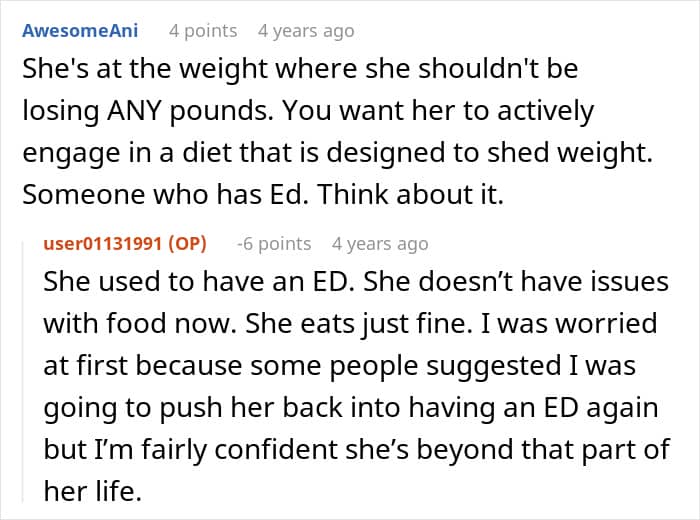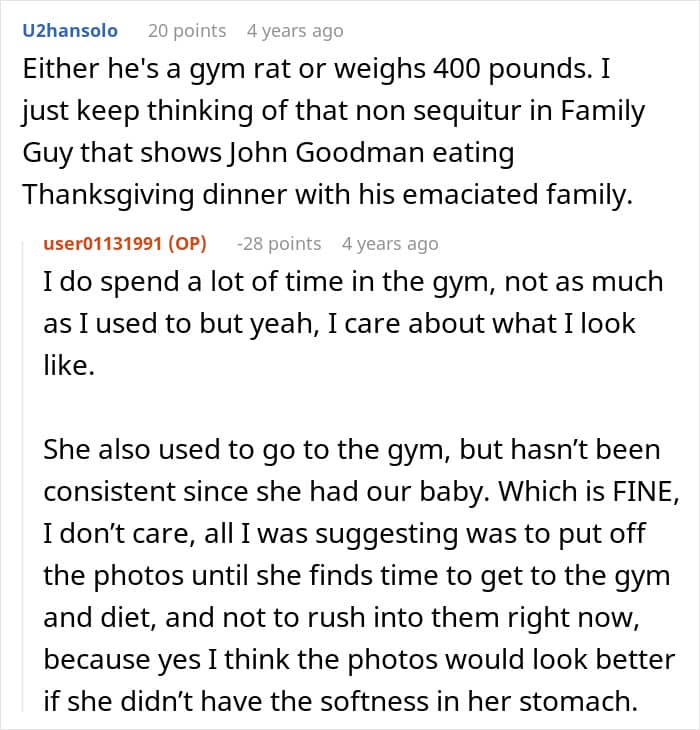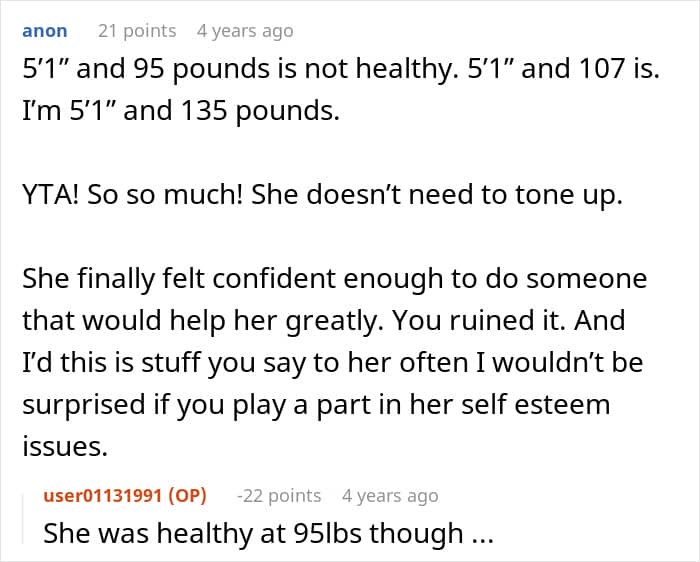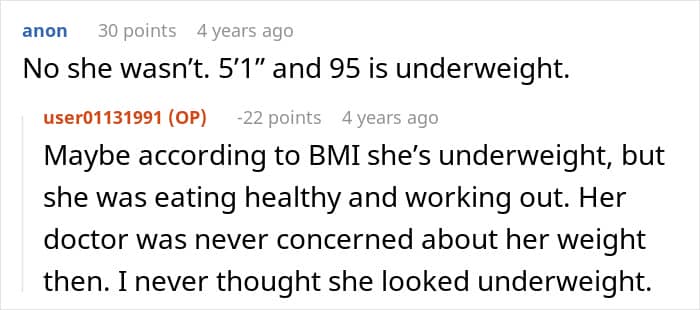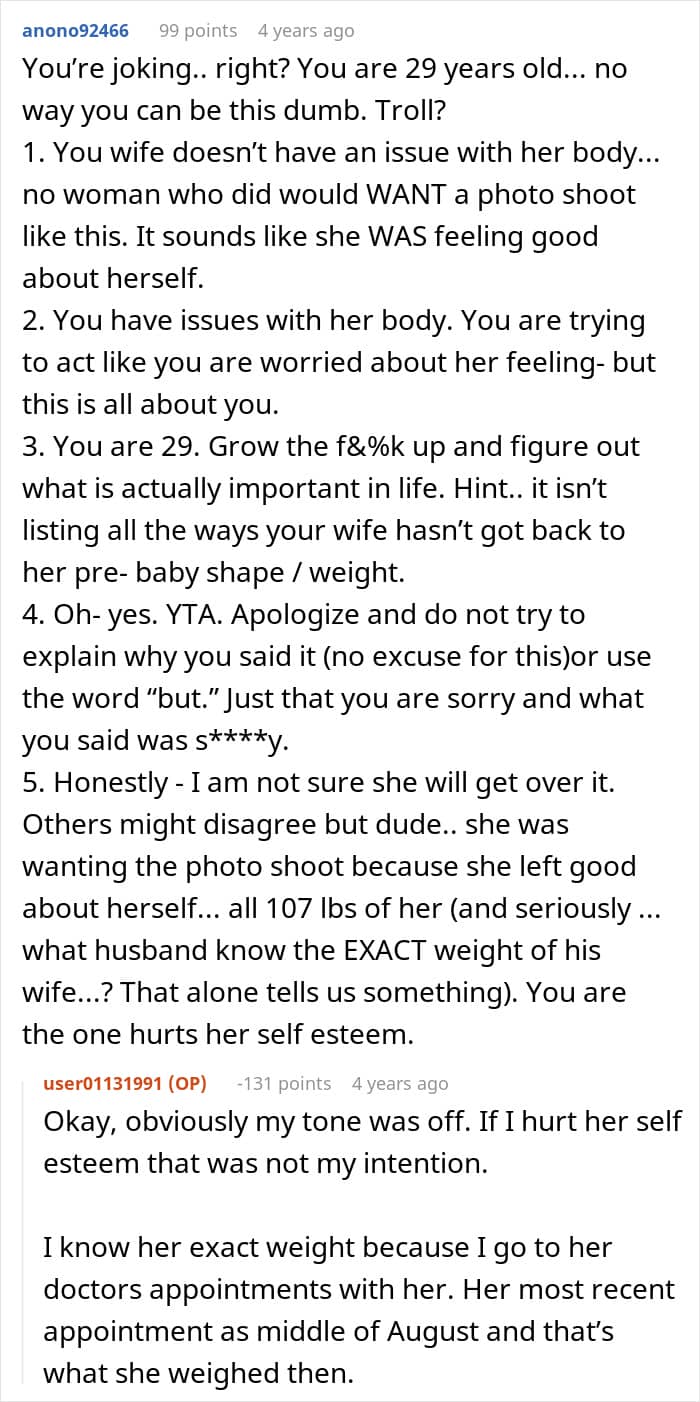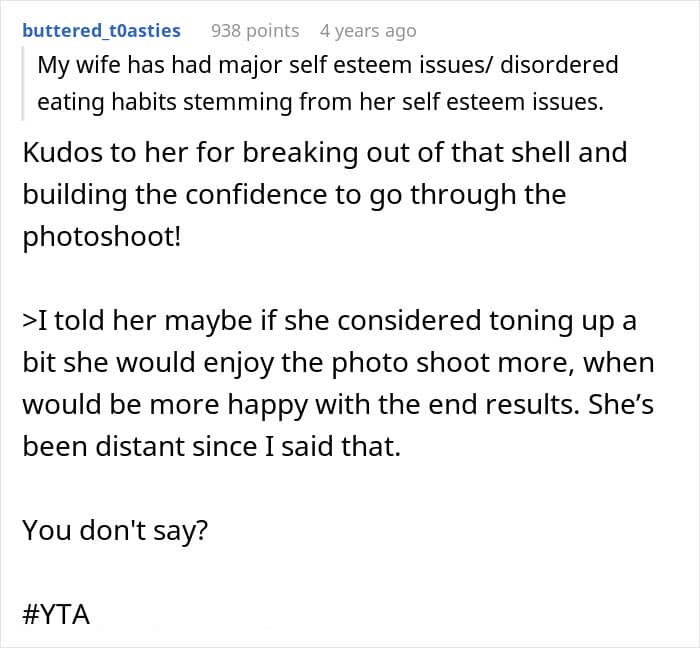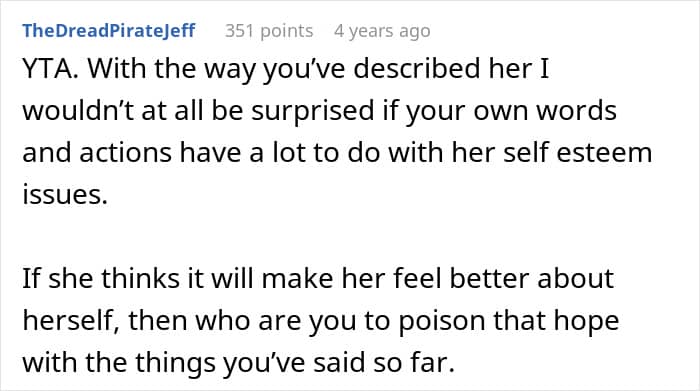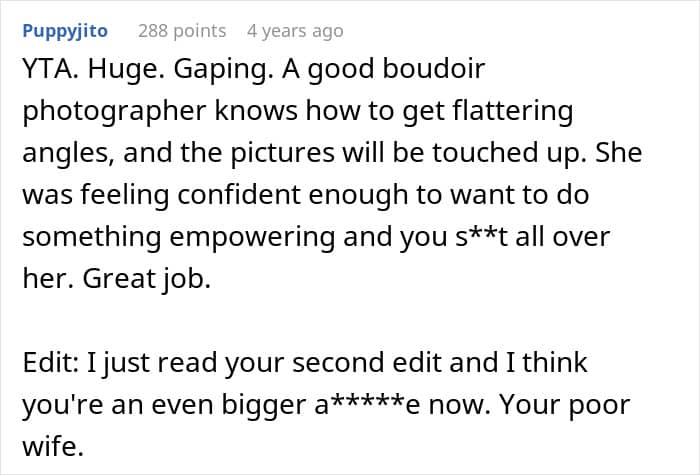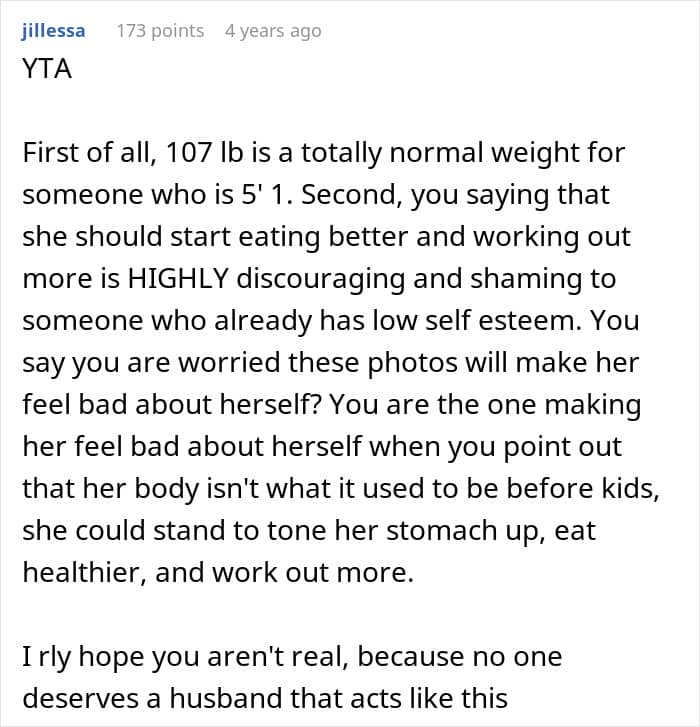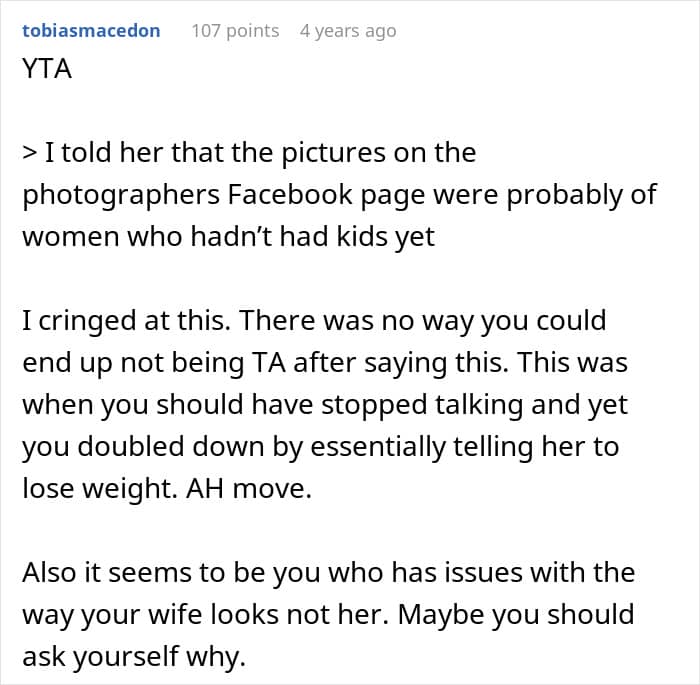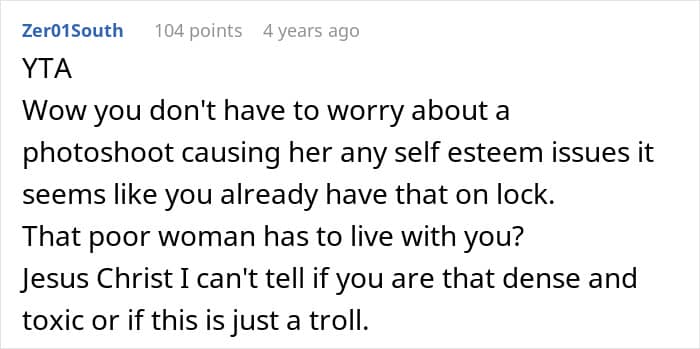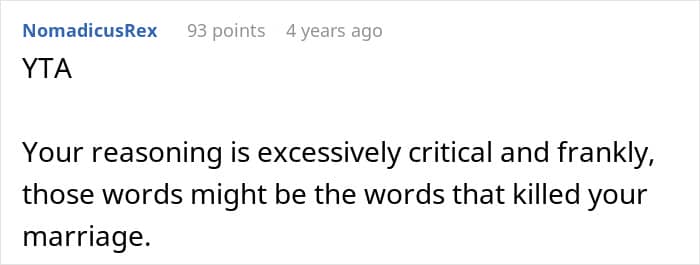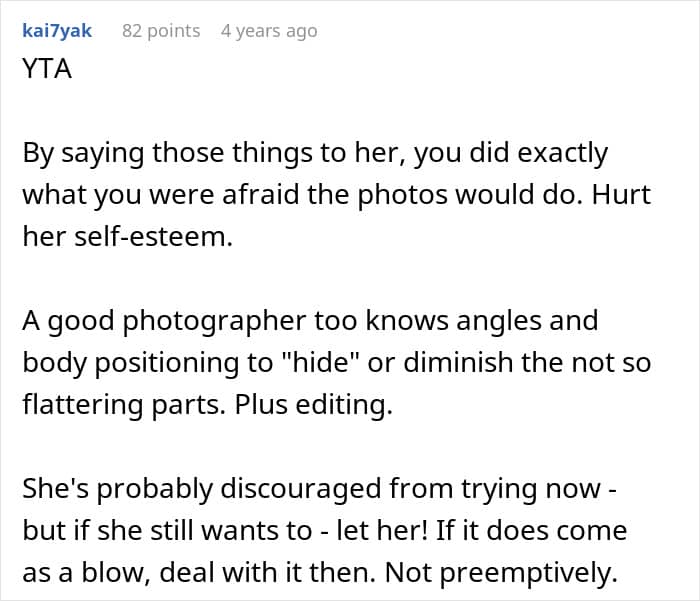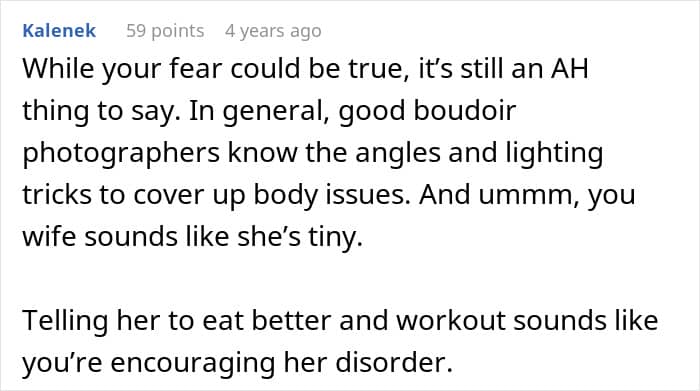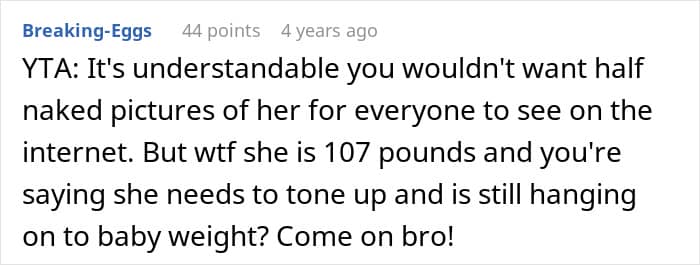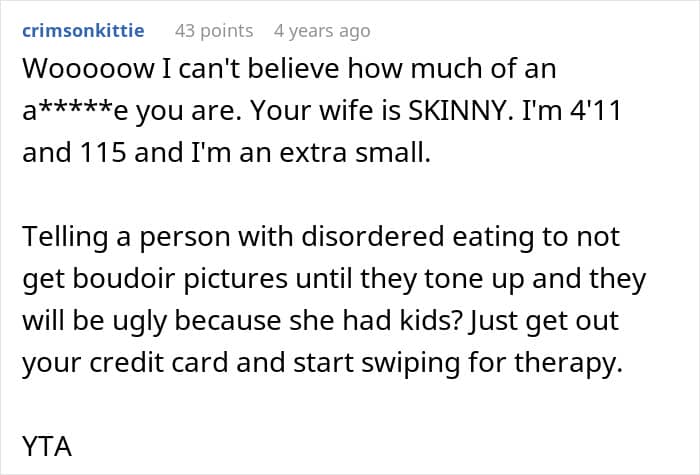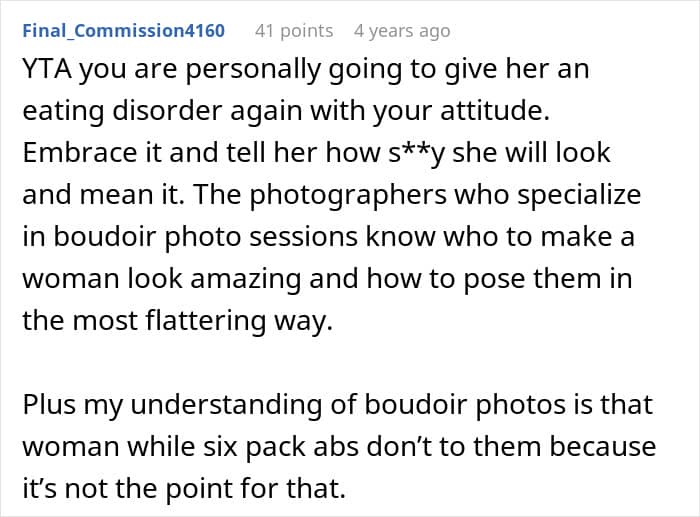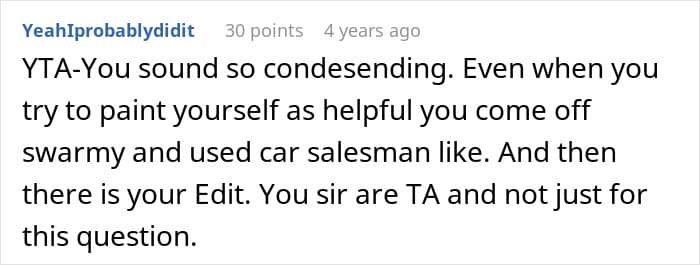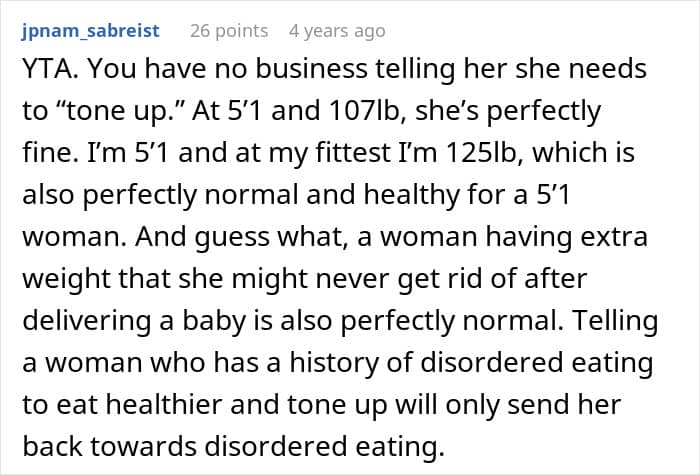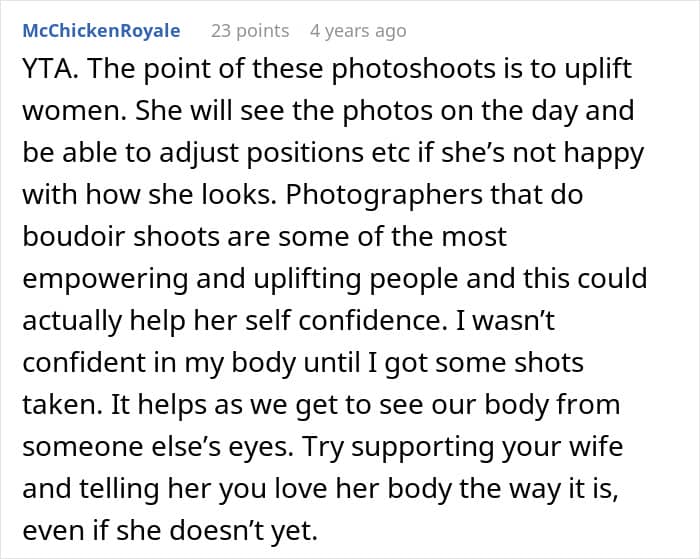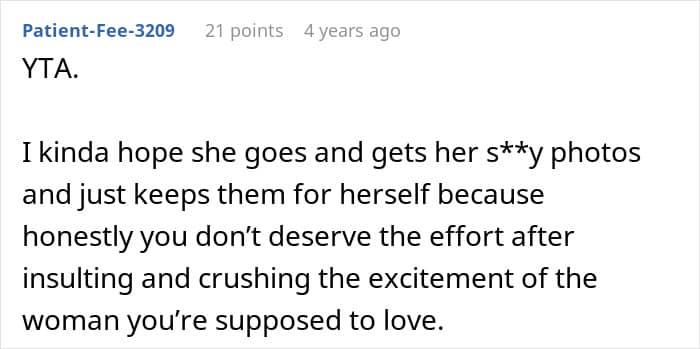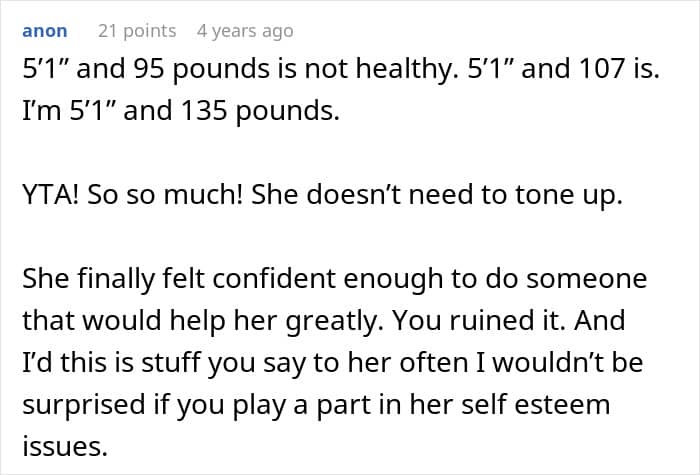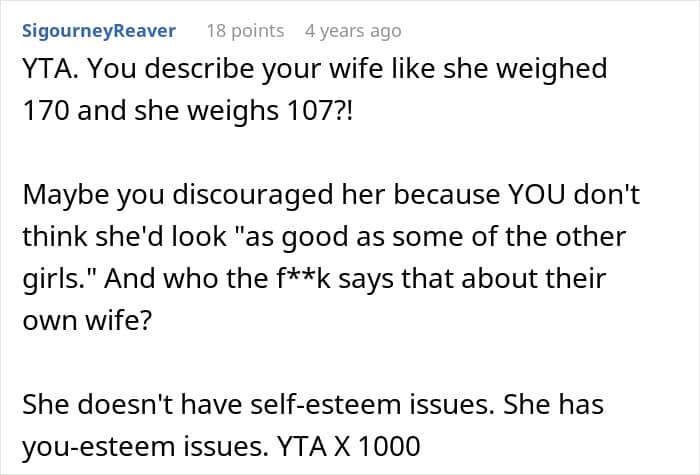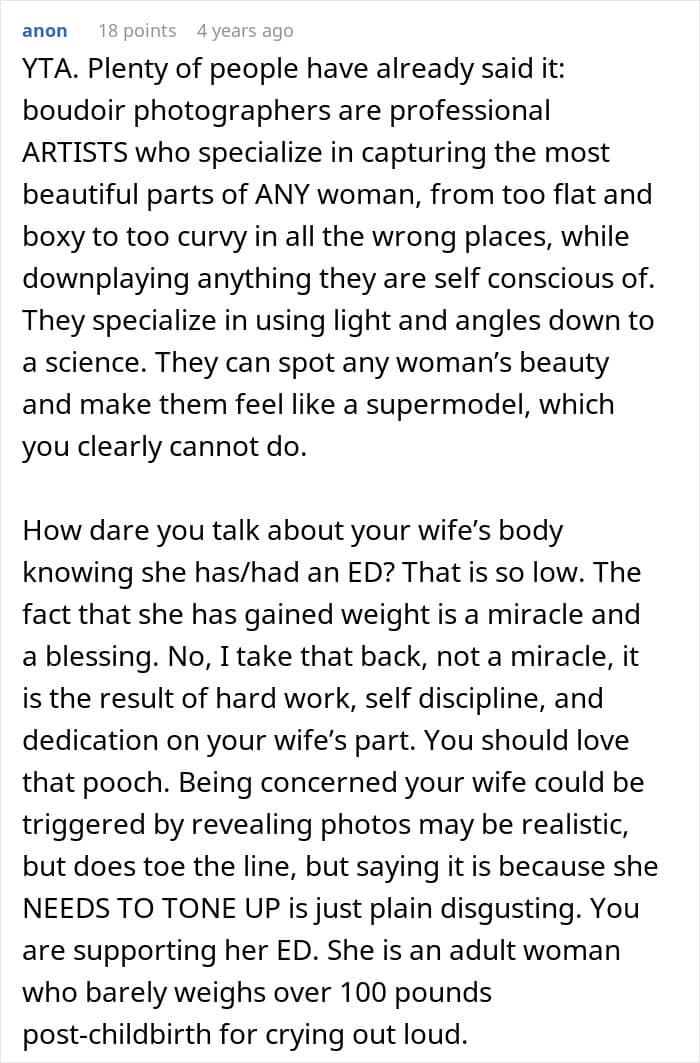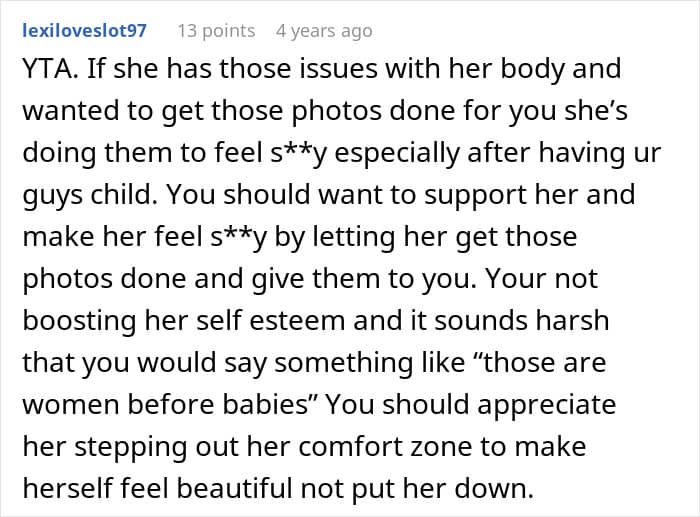Ah, men. Just when you think they’ve run out of ways to miss the point, this guy shows up.
A Redditor recently asked if he was the jerk for telling his wife not to do a boudoir shoot. Why? Because he was worried she wouldn’t like the photos unless she slimmed down a bit. Yes, really. This, despite her weighing 107 lbs (or 47 kg).
He thought it was helpful. She thought it was hurtful. Now she’s distant, and he’s confused. Catch the full post below.
RELATED:The man told his wife not to do a boudoir shoot because, according to him, she wasn’t in her best shape and might hate the photos

And now, somehow, he doesn’t understand why she’s upset


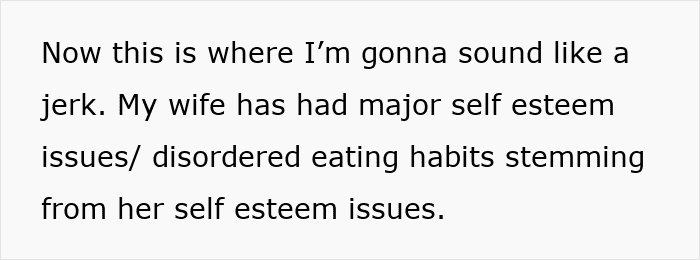
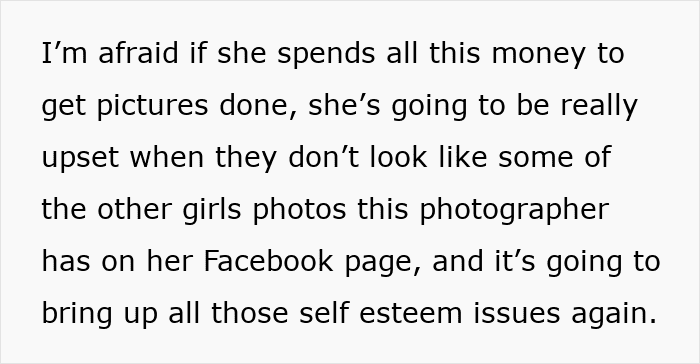
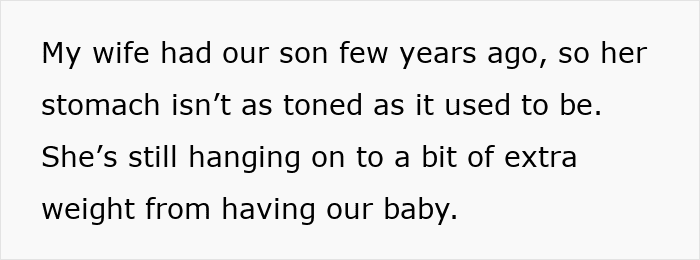



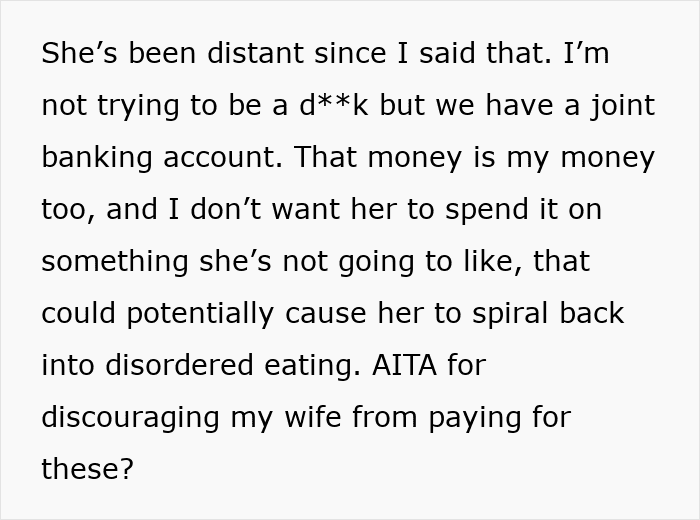
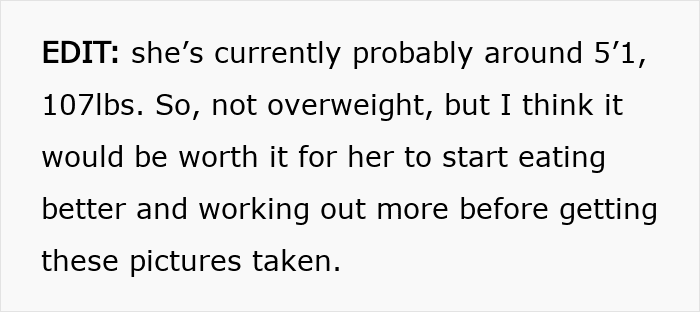
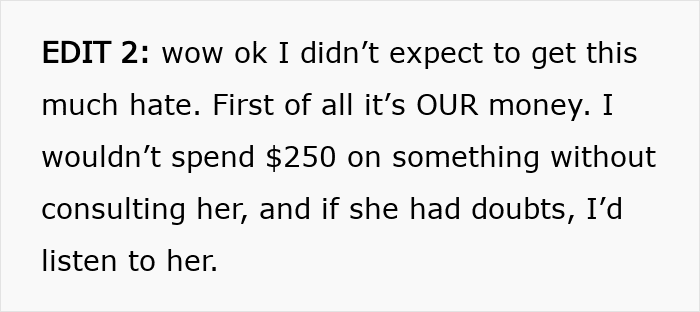
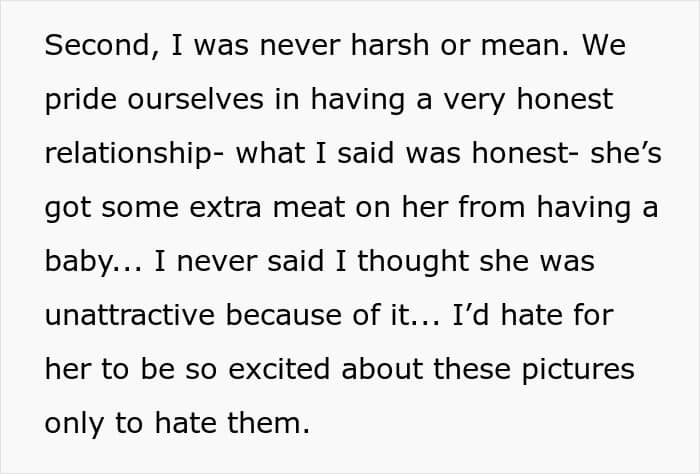
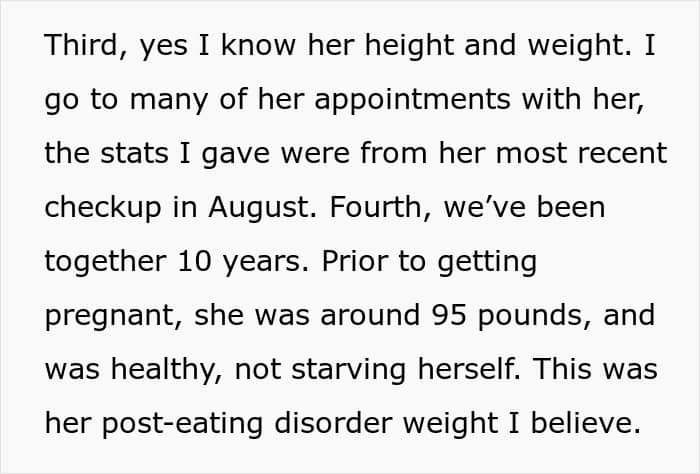
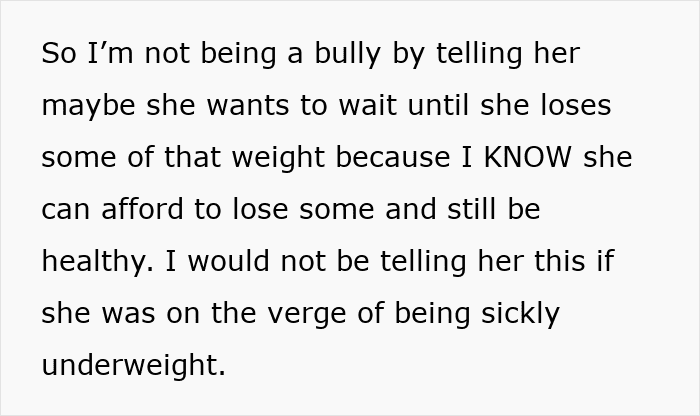

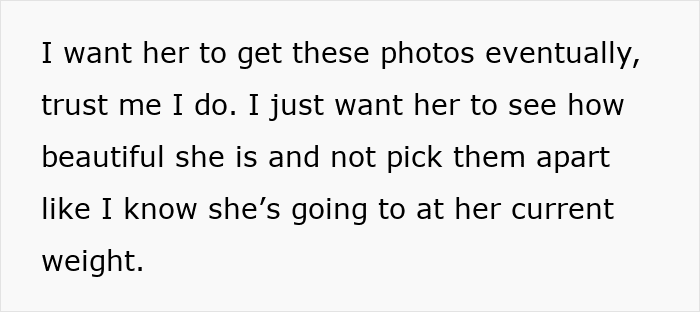

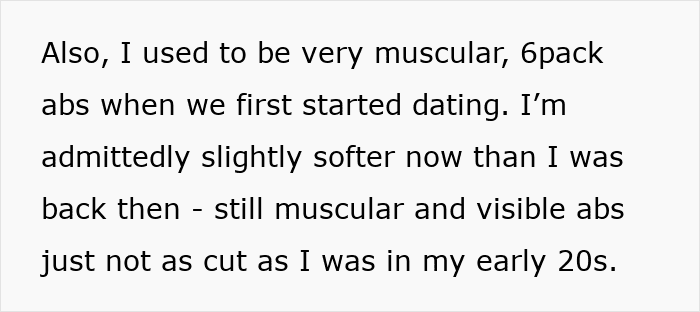
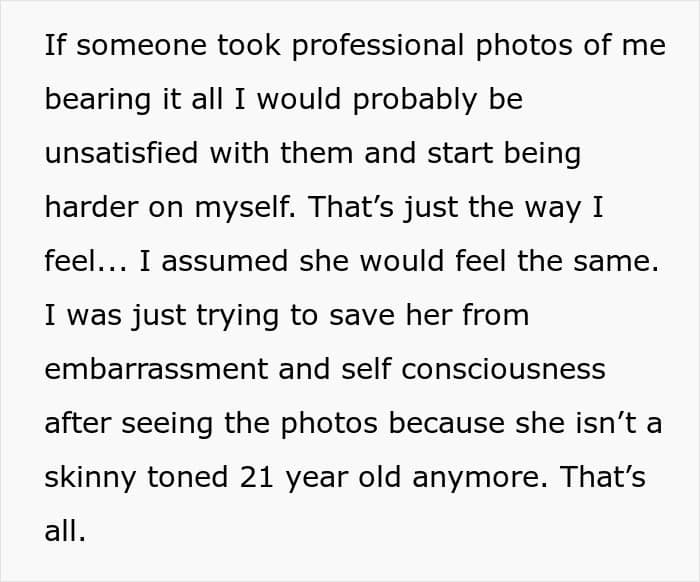
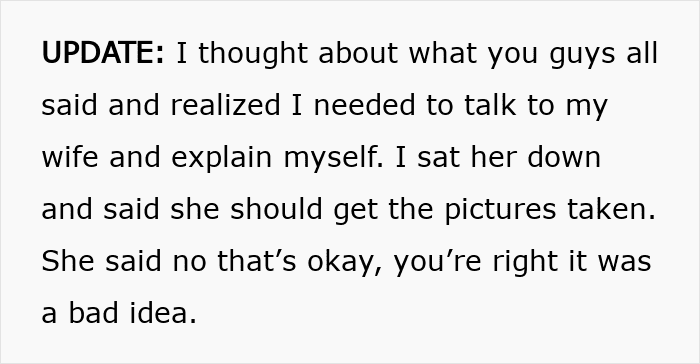
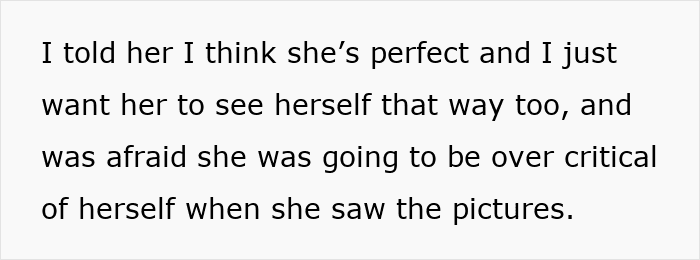
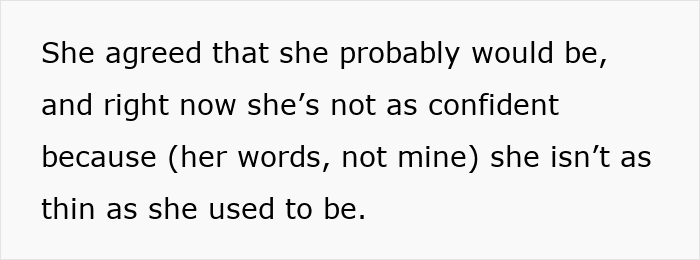

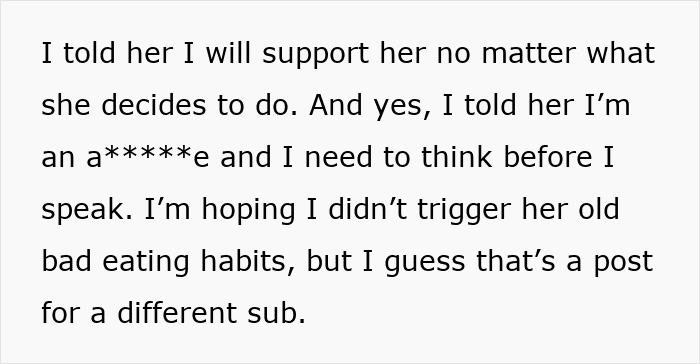
Around a third of people diagnosed with eating disorders relapse

There’s a lot to unpack in this story, but one thing that stands out is how easily the lasting impact of eating disorders can be dismissed. These are not fleeting struggles—they often linger, shape everyday life, and can quietly resurface years after recovery.
Across all eating disorder diagnoses, research shows that about one third of individuals experience relapse. In cases of anorexia, only around 21 percent fully overcome the condition, while most see only partial improvement.
That raises the question: why is recovery so difficult, especially when there are so many programs and resources available?
Mental Health America offers some important insight. And when you look at it through their lens, the difficulty begins to make sense.
Unlike other conditions, like substance use disorders, where the goal is often total avoidance, people recovering from eating disorders don’t have that option. You can’t avoid food. You need it to live. That means recovery involves facing your triggers multiple times a day, every day.
And the challenges don’t stop there.
Even if someone is actively working to heal, they’re constantly surrounded by messages that can chip away at their progress. Social media is full of weight loss trends, diet hacks, “clean eating” advice, and even full-blown ED communities that glorify harmful behaviors.
Offline, those same pressures can appear as casual comments or unsolicited advice, often from people who mean well but don’t understand the damage they’re doing.
To make matters worse, eating disorders don’t always look like people expect. Someone can appear underweight, “normal” weight, or even overweight and still be battling a severe, life-threatening condition.
That disconnect can delay diagnosis and treatment. Disordered thoughts tend to take hold gradually, and by the time someone realizes what’s happening, they may already be in a serious physical and emotional state.
Even loved ones can miss the signs, especially when behaviors like restricting food or excessive exercise are praised as “healthy.” Compliments on weight loss often reinforce the very habits someone is trying to recover from.
Being dismissed by others, or dismissing your own concerns, can make it incredibly hard to ask for help. But here’s the truth: you don’t have to look a certain way to be struggling. And you absolutely don’t have to look a certain way to deserve help.
Unfortunately, not all mental health professionals are trained to recognize or treat eating disorders effectively. That’s why it’s important to find a team that understands the complexity of these conditions, whether it’s a therapist, psychiatrist, nutritionist, or a trusted support network.
And if there are people in your life, like OP in this story, who criticize your body knowing your history with an eating disorder, that is not a supportive or healthy environment.
Still, it’s important to remember: recovery is possible. And with the right care, compassion, and understanding, people do heal. That’s why continued awareness and education matter, so that no one has to go through it alone or in silence.
If you or someone you know is struggling with an eating disorder, please don’t hesitate to reach out:
USA – National Alliance for Eating Disorders (NEED)
1-866-662-1235
https://www.allianceforeatingdisorders.com/
UK – Beat Eating Disorders Helpline
0808 801 0677
https://www.beateatingdisorders.org.uk
Readers couldn’t believe the audacity of the man, who somehow kept digging himself deeper with every comment he made

